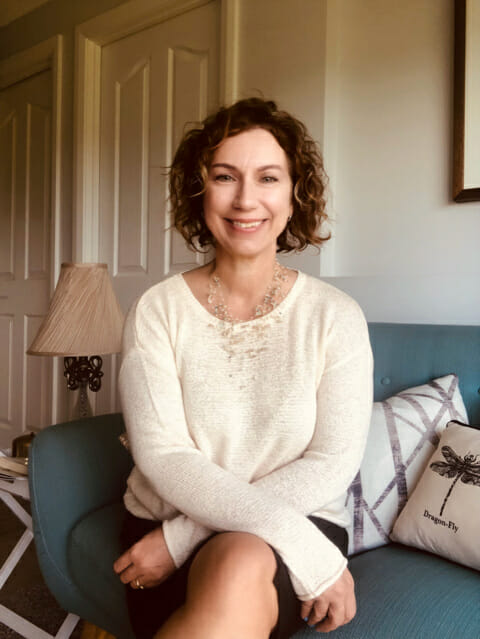![]()
We have a bunch of amazing experts giving advice about the topics we talk about on our Wellness app.
Let’s meet Ruth Fellowes, who helps parents of children with behavioural concerns, ADHD, mood health and sleep using natural medicine, to bring calm to the household and to let your child’s real personality shine.
She is a clinical Nutritionist, Herbalist, educator and speaker, with over 13 years clinical experience. Ruth’s professional qualifications include a Masters Degree in Public Health, a Health Science degree in Complementary Medicine, and advanced diplomas in Nutritional Medicine and Western Herbal Medicine.

What made you decide to go into your profession?
“As commonly happens for a lot of people, personal reasons! It all started as a new mum struggling to understand her little boy who seemed very sensitive,” says Ruth.
“I put that down to personality until I stumbled across a book called Fed Up which detailed how food and additive intolerances can impact on mood, behaviour and learning.
“Bought the book, applied the plan of elimination and reintroduction and was stunned to learn that what we eat actually does impact on how we think, feel, and function. A few children later (we have 4 boys) and I decided as a stay at home mum, it would be great to study the fascinating world of nutrition.”
What do you specialise in?
“After 15 years of practice I am still fascinated by the impact and connections that food has within the body. Food is not just about calories or taste, it is medicinal and therapeutic and capable of bringing about so much change within the body, including mental wellbeing,” she says.
“Today my key focus is still children’s health, mood, behaviour, sleep and gut health, drawing on the knowledge on the rapidly developing field of nutritional psychiatry.”

What tips do you have for women and children to lead a happier life?
“The way your body functions is always going to be unique to you. We have guidelines around health but at the end of the day, they can only be generalisations,” says Ruth.
“You will always respond and use food differently to others, and your need for some nutrients over others will always be different. Take the time to work this out, and help your body feel more effective and to function better!
“Eat more real foods, particularly protein rich foods. We overemphasise treat foods and refined carbohydrates in our culture. The best exercise is to just be outdoors.
“Research consistently shows that more green time and less screen time is so valuable to mental health, and children especially need it!”
What is your favourite quote?
“You have only failed if you have given up…. Until then it’s called learning”.
Persistence is the key when it comes to raising our kids!
What are the most common mistakes or misconceptions people have about your area of expertise?
“There normally aren’t shortcuts. Finding that one powerful food or supplement to bring in or avoid rarely works, because everything is connected,” adds Ruth.
“Sometimes the body (which includes the brain) need time to rebalance and correct various areas, and changing your diet to suit what you need is a lifestyle change and not something done for a month and everything is sorted.
“Nutritional psychiatry or therapy recognises that what we eat really does matters meaning that food and nutrients can be therapeutic tools to improve our mental health and brain function, including behaviour!”